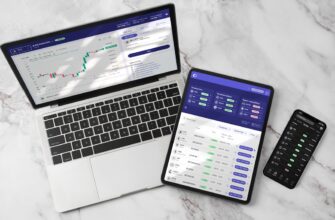The meteoric rise of cryptocurrency has sparked intense debate among Muslims worldwide: **Is trading crypto halal?** With digital assets like Bitcoin and Ethereum reshaping finance, understanding their compliance with Islamic principles is crucial. This article explores the intersection of Sharia law and crypto trading, examining scholarly opinions, key concerns, and practical guidelines for ethical participation.
## Understanding Halal and Haram in Islamic Finance
Islamic finance operates under Sharia law, which prohibits:
– **Riba (Interest)**: Earning or paying fixed interest on loans or investments.
– **Gharar (Excessive Uncertainty)**: Transactions with ambiguous terms, hidden risks, or speculative outcomes.
– **Maysir (Gambling)**: Activities reliant on chance rather than skill or legitimate trade.
– **Haram Industries**: Involvement with alcohol, gambling, or other forbidden sectors.
For crypto trading to be halal, it must avoid these elements while promoting transparency and real economic value.
## Key Islamic Concerns with Cryptocurrency Trading
### 1. Gharar (Uncertainty)
Cryptocurrencies are notoriously volatile. Prices can swing 20% in hours, creating ambiguity about asset value—a red flag under Sharia law.
### 2. Maysir (Gambling)
Day trading or leveraged positions resemble gambling if driven by speculation rather than informed analysis. Pump-and-dump schemes amplify this risk.
### 3. Riba (Interest)
While crypto itself is interest-free, many platforms offer staking rewards or lending programs with fixed returns, potentially violating riba prohibitions.
### 4. Lack of Intrinsic Value
Some scholars argue cryptocurrencies lack tangible backing (like gold or productive assets), raising questions about their legitimacy as “wealth” in Islam.
## Scholarly Opinions: Is Crypto Trading Halal or Haram?
Views remain divided:
**Permissible Arguments**:
– Organizations like Indonesia’s Nahdlatul Ulama and Dubai’s Sharia Board approve Bitcoin as a tradable asset.
– Reasoning: Crypto functions as digital property with utility (e.g., cross-border payments), avoiding riba if traded fairly.
**Prohibited Arguments**:
– Scholars from Turkey’s Diyanet and Egypt’s Dar al-Ifta deem crypto haram due to volatility and speculation risks.
– Concerns: Anonymity enables illicit activities, and mining consumes excessive energy (against Islamic environmental principles).
**Consensus?** No universal ruling exists. Individual responsibility (fatwa for one’s situation) is emphasized.
## How to Trade Crypto in a Halal Way: 5 Guidelines
If you proceed, follow these Sharia-compliant practices:
1. **Prioritize Utility Coins**: Focus on cryptocurrencies with real-world use cases (e.g., Ethereum for smart contracts), avoiding meme coins or purely speculative assets.
2. **Avoid Riba-Based Earnings**: Steer clear of interest-yielding activities like crypto lending or staking with guaranteed returns. Opt for profit-sharing models instead.
3. **Limit Speculation**: Hold assets long-term (months/years) to reduce gharar. Day trading or derivatives are high-risk and often non-compliant.
4. **Ensure Transparency**: Use regulated exchanges with clear ownership records. Anonymous DeFi platforms may violate Islamic contract laws.
5. **Pay Zakat**: Calculate 2.5% annual Zakat on crypto holdings if they exceed the nisab threshold, treating them like currency or tradable goods.
## Frequently Asked Questions (FAQ)
### Q: Is Bitcoin halal according to Islam?
A: Opinions differ. Some scholars approve it as a digital commodity, while others prohibit it due to volatility. Evaluate your trading approach—long-term holding is more likely compliant than speculation.
### Q: Can Muslims mine cryptocurrency?
A: Mining may be permissible if:
– Energy sources are sustainable (avoiding waste).
– Rewards aren’t interest-based.
– Operations don’t support haram activities (e.g., illegal transactions).
### Q: Is staking crypto halal?
A: Typically no, as fixed staking rewards resemble riba. If rewards are variable (based on network profits) and involve genuine work, some scholars may approve.
### Q: Are there Sharia-compliant cryptocurrencies?
A: Coins like XDC (XinFin) and Islamic Coin (ISLM) claim Sharia compliance via ethical governance and utility focus. Verify certifications from bodies like Bahrain’s Shariyah Review Bureau.
### Q: How do I calculate Zakat on crypto?
A: Assess your portfolio’s market value annually. If total wealth (including crypto) exceeds the nisab (87.48g gold value), pay 2.5% in Zakat.
## Final Verdict
The question “Is trading crypto halal?” lacks a one-size-fits-all answer. While some forms may comply with Islamic principles—particularly long-term investing in utility tokens—speculative trading often violates prohibitions against gharar and maysir. Consult a qualified Islamic scholar, prioritize ethical practices, and remember: when in doubt, abstinence is the safest path. As crypto evolves, ongoing dialogue among scholars will refine these guidelines further.








